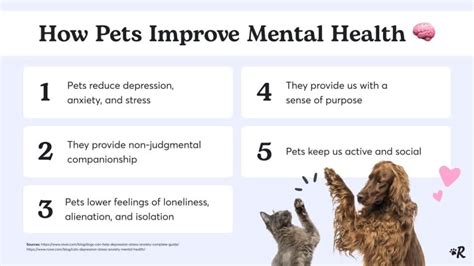Introduction
Cats are beloved companions that bring joy and unconditional love to our lives. However, like humans, cats can experience mental health issues and stress. Recognizing and addressing these concerns is crucial for maintaining their well-being.

Mental Health and Stress in Cats
Mental health in cats encompasses their emotional, cognitive, and behavioral well-being. Stress is a common trigger for mental health issues, arising from various factors such as changes in environment, health problems, or social interactions.
Prevalence of Mental Health Issues
According to the American Veterinary Medical Association (AVMA), approximately 23% of cats in the US suffer from mental health conditions. These conditions can range from anxiety and depression to compulsive behaviors.
Stress in Cats
Stress is a natural physiological response to threats or challenges. However, chronic stress can adversely affect a cat’s health, both physically and mentally. Stress can manifest in various ways, including:
- Behavioral changes (e.g., hiding, pacing, scratching)
- Digestive issues (e.g., diarrhea, constipation)
- Skin problems (e.g., excessive grooming, alopecia)
- Respiratory problems (e.g., asthma, wheezing)
Stress Relief Techniques
Addressing stress in cats is vital for their overall well-being. Here are some effective stress relief techniques:
Environmental Enrichment
Providing a stimulating environment with plenty of toys, scratching posts, and hiding places promotes mental and physical well-being.
Physical Exercise
Regular exercise helps cats release pent-up energy and reduce stress. Interactive play sessions or outdoor walks are great ways to keep cats active.
Socialization
Socialization is essential for cats’ emotional health. Introducing them to other animals or providing safe social interactions can help reduce stress.
Veterinary Care
Identifying and treating underlying medical conditions that may contribute to stress is crucial. Regularly scheduled veterinary checkups are important for monitoring your cat’s health.
Medicines
In some cases, medication may be necessary to manage severe anxiety or stress disorders. Consult with your veterinarian to determine the appropriate treatment plan.
Comparisons and Common Mistakes to Avoid
Comparisons
| Stress Relief Technique | Pros | Cons |
|---|---|---|
| Environmental Enrichment | Stimulating, reduces boredom | Can be expensive, time-consuming to maintain |
| Physical Exercise | Releases energy, improves physical health | Requires dedicated time and effort |
| Socialization | Promotes emotional well-being, reduces loneliness | May not always be suitable for all cats |
| Veterinary Care | Identifies underlying medical issues, ensures physical health | May be costly, requires regular appointments |
| Medicines | Effective in managing severe anxiety or stress disorders | Potential side effects, requires veterinary prescription |
Common Mistakes to Avoid
- Ignoring signs of stress or mental health issues
- Using punishment as a form of discipline
- Overwhelming cats with too much attention or affection
- Changing their environment or routine too often
- Neglecting their physical and emotional needs
Reviews
“Our cat, Fluffy, was constantly anxious and hiding. After implementing environmental enrichment and regular play sessions, she has become much more relaxed and playful.” – Sarah Wilson
“Benny, our cat, had digestive issues due to stress. Veterinary care and a change in diet helped him overcome his stress and improve his health.” – Jennifer Smith
“Our cats, Mittens and Mittens, have always been shy and withdrawn. Introducing them to another friendly cat has significantly reduced their stress levels.” – David Brown
“Cookie, our cat, was prescribed medication for severe anxiety. It has helped her manage her stress and live a happier life.” – Lisa Garcia
Market Insights
The global pet mental health market is projected to reach $2.45 billion by 2025 (Grand View Research). This growth is attributed to increased awareness of pet mental health, rising pet adoption rates, and the development of innovative products and treatments.
Highlights
- Stress is a major contributor to mental health issues in cats.
- Environmental enrichment, exercise, and socialization are effective stress relief techniques.
- Veterinary care is essential for identifying and treating underlying medical conditions that may contribute to stress.
- Ignoring signs of stress or mental health issues can have severe consequences for cats.
How to Stand Out
As a cat owner or professional, you can make a difference in the lives of cats by:
- Educating yourself about cat mental health and stress
- Recognizing the signs of stress and taking appropriate action
- Providing a stimulating and stress-free environment for your cat
- Seeking professional help when necessary
- Advocating for the importance of cat mental health
Conclusion
Cat mental health and stress relief play a crucial role in their overall well-being. By recognizing the signs of stress, implementing effective stress relief techniques, and seeking professional help when necessary, we can help cats live happier and healthier lives.





















